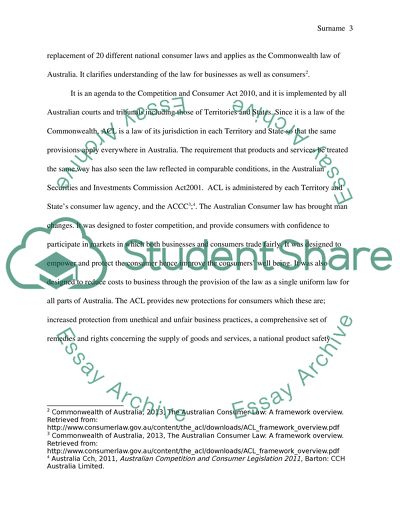Cite this document
(“Business Law - s 18 of the Australian Consumer Law within the Assignment”, n.d.)
Business Law - s 18 of the Australian Consumer Law within the Assignment. Retrieved from https://studentshare.org/law/1636149-business-law-s-18-of-the-australian-consumer-law-within-the-competition-and-consumer-act-2010-acl
Business Law - s 18 of the Australian Consumer Law within the Assignment. Retrieved from https://studentshare.org/law/1636149-business-law-s-18-of-the-australian-consumer-law-within-the-competition-and-consumer-act-2010-acl
(Business Law - S 18 of the Australian Consumer Law Within the Assignment)
Business Law - S 18 of the Australian Consumer Law Within the Assignment. https://studentshare.org/law/1636149-business-law-s-18-of-the-australian-consumer-law-within-the-competition-and-consumer-act-2010-acl.
Business Law - S 18 of the Australian Consumer Law Within the Assignment. https://studentshare.org/law/1636149-business-law-s-18-of-the-australian-consumer-law-within-the-competition-and-consumer-act-2010-acl.
“Business Law - S 18 of the Australian Consumer Law Within the Assignment”, n.d. https://studentshare.org/law/1636149-business-law-s-18-of-the-australian-consumer-law-within-the-competition-and-consumer-act-2010-acl.


